What is Sleep Apnea? – Denver, CO
How Your Breathing Affects Your Sleep

It’s not unusual for someone to have sleep apnea for years without even realizing it. You may wake up feeling as though you didn’t get any rest at all, but you may not realize why and simply try to go through the rest of your day like you normally do. As many as 25 million people could be suffering from the disorder at this very moment, and most of them may not suspect it! That’s why it’s so important to learn as much as you can about sleep apnea – so you can give yourself the best chance of identifying this devastating disorder as early as possible.
Dr. Glen Thompson can answer any questions you have during a consultation visit, including, "What is sleep apnea?" at his Denver, CO sleep apnea specialty pracitce, Downtown Denver Sleep Solutions. Before that, though, we invite you to read below and learn more about the damage sleep apnea can cause and the importance of having it treated.
Why Choose Downtown Denver Sleep Solutions for Sleep Apnea Treatment?
-
Dentist with
Extensive Sleep Apnea
Training - Carefully Personalized Oral Appliances
- Friendly Staff and Convenient Office Hours
What Is Sleep Apnea?
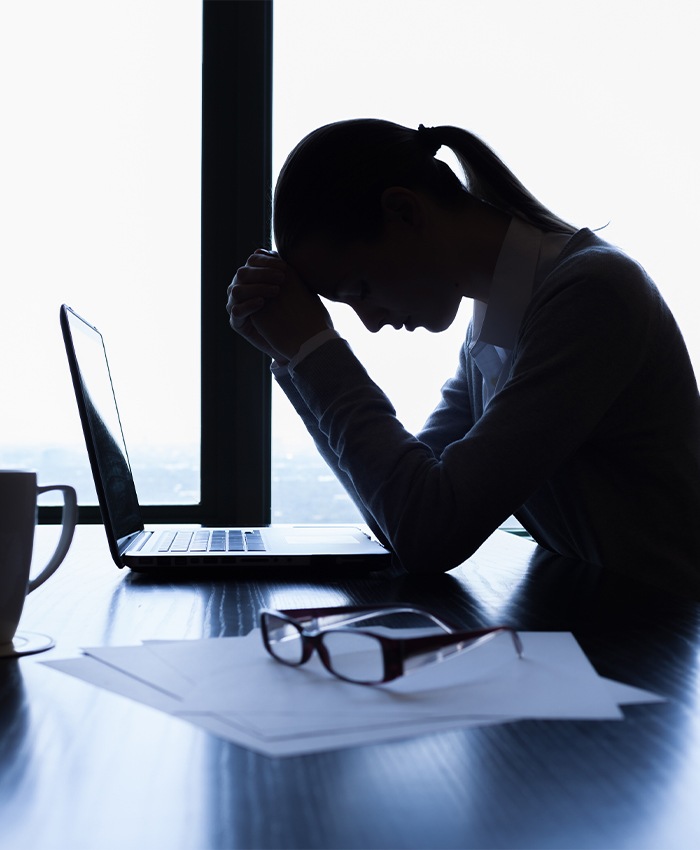
You experience sleep apnea if your breathing is regularly interrupted while you sleep. One interruption may not be a problem on its own, as it will typically only last for about 10 seconds. However, severe cases of sleep apnea can cause 100 interruptions every hour, and each time the sleep cycle is disrupted, preventing you from getting the rest your mind and body needs.
Multiple things happen to your body once breathing stops. First, your blood pressure rises. Then you are woken up so that you can resume breathing as quickly as possible. While the awakenings are brief enough that you might not even remember them (which is a large part of why most people don’t realize that they even have sleep apnea at first), your blood pressure can remain in a heightened state for quite a while, putting you at risk for heart attacks and strokes in the meantime.
Learn More About Central Sleep Apnea
What Causes Sleep Apnea?
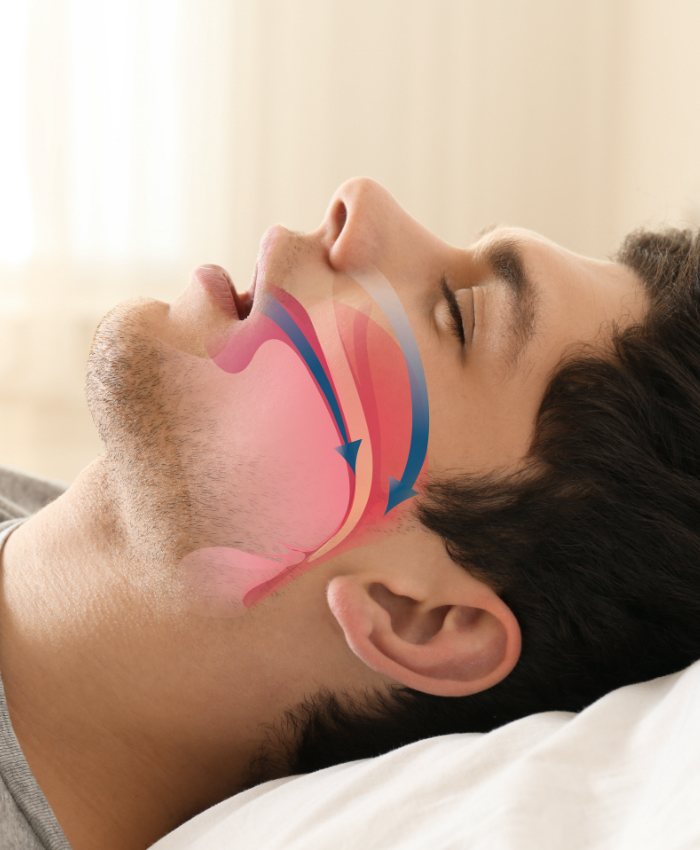
There are two major kinds of sleep apnea: obstructive sleep apnea and central sleep apnea. While they have similar effects, their root causes are very different.
Obstructive sleep apnea, or OSA for short, is the more common type. It occurs when there’s a physical obstruction of the airway, which could take the form of enlarged tonsils, a stuffy nose, or excessive fatty tissues that have become too relaxed. Obesity and having a thick neck can increase your risk of developing OSA, as they make the airway narrower in general and therefore more likely to be cut off.
Central sleep apnea, or CSA, is a failure of the brain. Your body won’t receive the signals needed to continue breathing, and thus the airflow will stop. CSA can be linked to various conditions such as heart or kidney failure, or it might be an unintended side effect of taking opiates and other kinds of drugs.
What Are the Symptoms of Sleep Apnea?
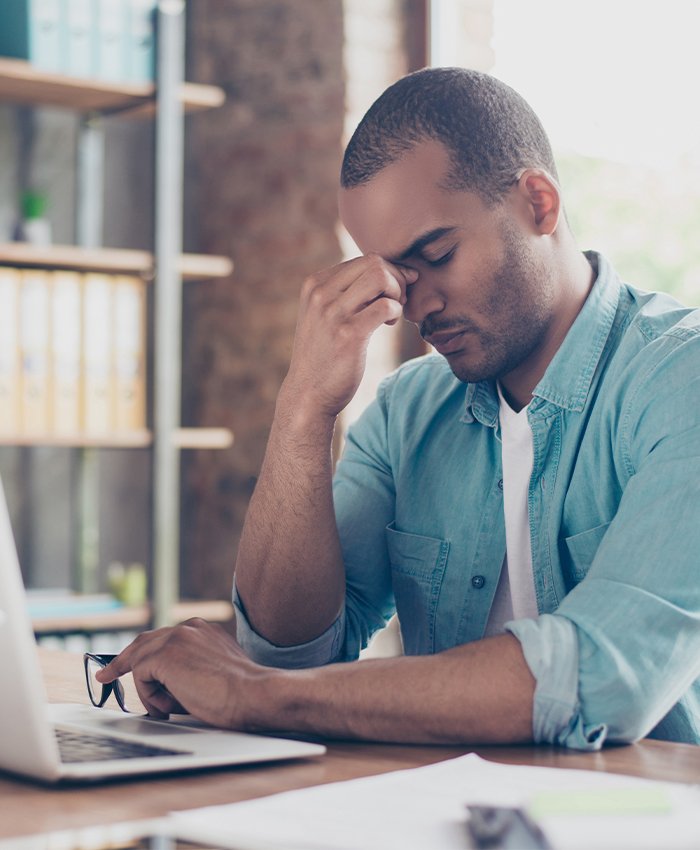
You may have sleep apnea if you experience any combination of the following symptoms. (They may not all occur at once but noticing any of them on a regular basis is cause for concern.)
- Frequent sleepiness during the day
- Loud, chronic snoring
- Periodically waking up gasping for air
- Experiencing headaches and sore throats in the morning
- Depression or mood swings
- Sudden weight gain
- Heart problems
- Memory or focus issues
- Sexual dysfunction
How Can Sleep Apnea Be Treated?
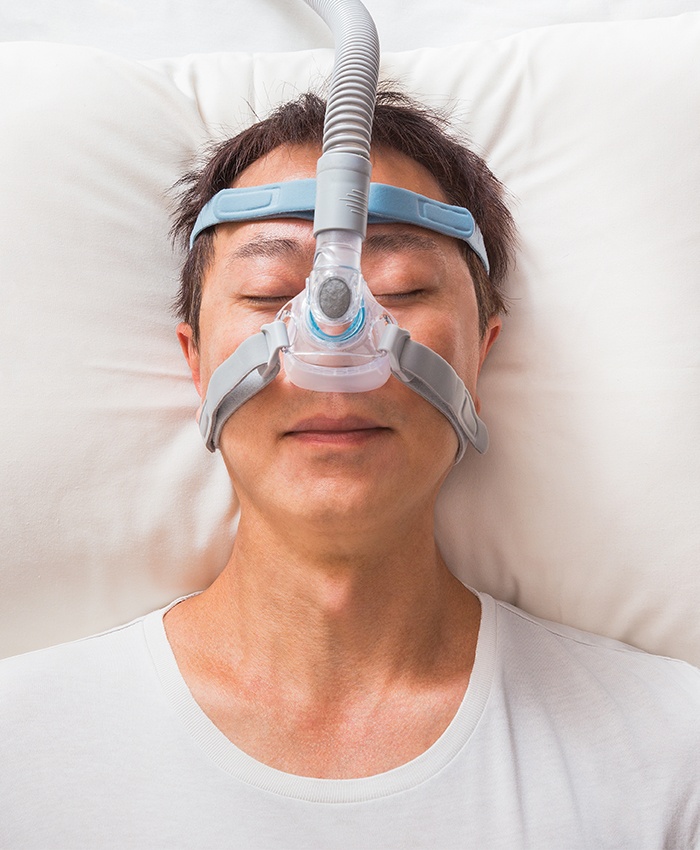
As soon as you have reason to think you have sleep apnea, you should seek medical help. The STOP-BANG Assessment gives you a way to determine whether or not you’re at risk for the disorder. If you send a completed assessment to us and we find that you’re at risk for the disorder, we can give you an at-home sleep test. A sleep doctor can check the results to see how you’re breathing at night in order to make an official diagnosis.
Once it has been determined that you have sleep apnea, we can start exploring ways to minimize the impact it has on your everyday life. CPAP is probably the most well-known option, but it comes with the obvious drawback of being somewhat uncomfortable and noisy. Patients with OSA who find that they can’t tolerate a CPAP machine should talk to Dr. Thompson about getting oral appliance therapy instead.
Instead of wearing a mask hooked up to a machine, you’ll put a small mouthguard on your teeth right before bed. The mouthguard will reposition your jaw or tongue in order to open up your airway. Since the appliance can be customized for your unique smile, many patients find it far more comfortable than CPAP.
Is Snoring Really a Problem?
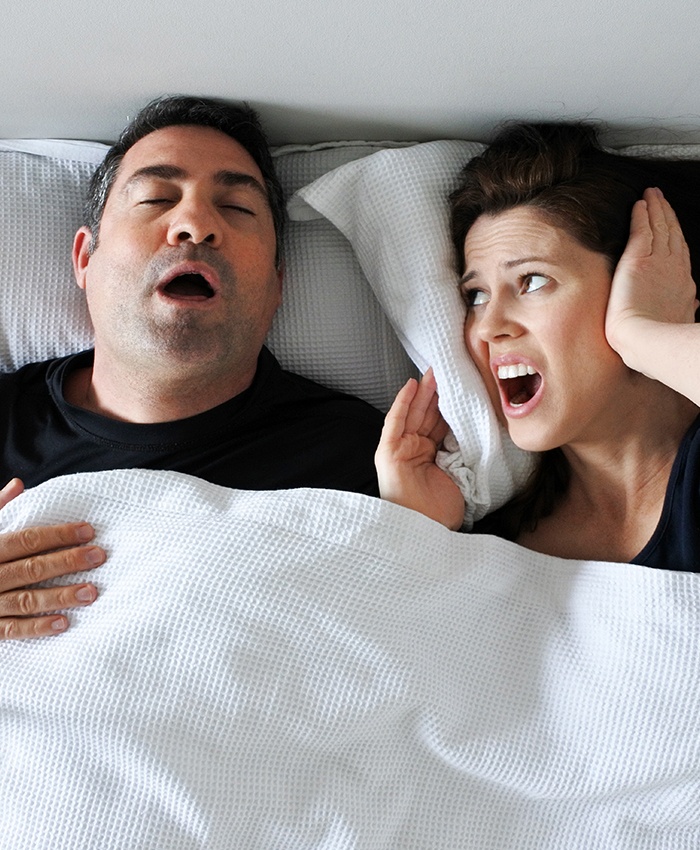
While snoring is obviously a nuisance for anyone else who happens to be awake at night, it can also be a warning sign that your own health is at risk. Snoring every once in a while isn’t necessarily a bad thing, but if it’s particularly loud and happens every night, it can point to sleep apnea or another disorder. An oral appliance will help relieve your snoring so that you and anyone who sleeps nearby can relax and get better rest.
Will Insurance Pay for Sleep Apnea Therapy?

Sleep apnea therapy in the form of a CPAP machine or an oral appliance is usually covered under a standard medical insurance plan, though each individual policy may vary. Our team members can help you figure out the best way to maximize your benefits so that you can take care of your budget while finding relief from sleep apnea.
Take the First Step Today

Leaving sleep apnea alone for too long can have grave consequences for your health. Downtown Denver Sleep Solutions can provide you with the means of identifying and treating your condition. Contact us today to schedule a consultation or ask further questions about the disorder so that you can get a head start on having it treated before suffering from the worst of the long-term damage!